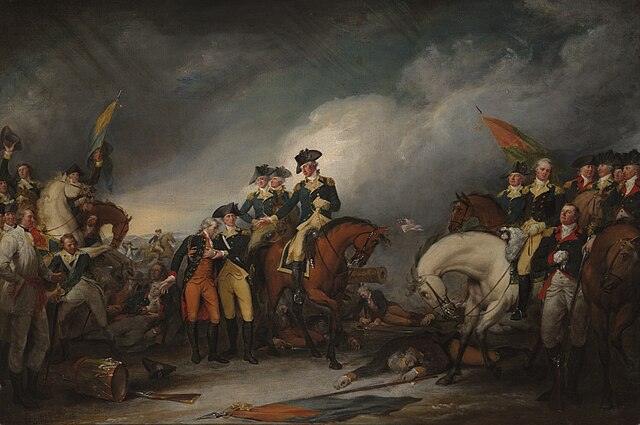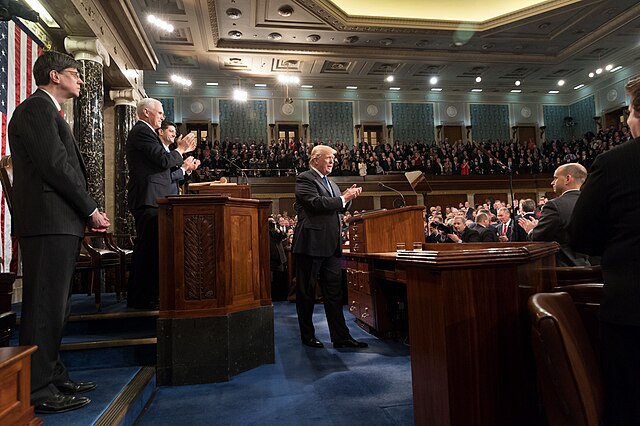James Monroe was an American statesman, lawyer, diplomat, and Founding Father who served as the fifth president of the United States from 1817 to 1825, a member of the Democratic-Republican Party. He was the last Founding Father to serve as president as well as the last president of the Virginia dynasty. His presidency coincided with the Era of Good Feelings, concluding the First Party System era of American politics. He issued the Monroe Doctrine, a policy of limiting European colonialism in the Americas. Monroe previously served as governor of Virginia, a member of the United States Senate, U.S. ambassador to France and Britain, the seventh secretary of state, and the eighth secretary of war.
Portrait by Samuel Morse c. 1819
Marker designating the site of James Monroe's birthplace in Monroe Hall, Virginia
The Capture of the Hessians at Trenton, December 26, 1776, by John Trumbull, showing Captain William Washington, with a wounded hand, on the right and Lt. Monroe, severely wounded and helped by Dr. John Riker, left of center, behind the mortally wounded Hessian Colonel Johann Gottlieb Rall. Rall is being helped by American Major William Stephens Smith
Elizabeth Kortright
President of the United States
The president of the United States (POTUS) is the head of state and head of government of the United States of America. The president directs the executive branch of the federal government and is the commander-in-chief of the United States Armed Forces.
President of the United States
George Washington, the first president of the United States
President Lyndon B. Johnson signs the 1964 Civil Rights Act at the White House on July 2, 1964, as Martin Luther King Jr. and others look on.
President Donald Trump delivers his 2018 State of the Union Address before Congress.








